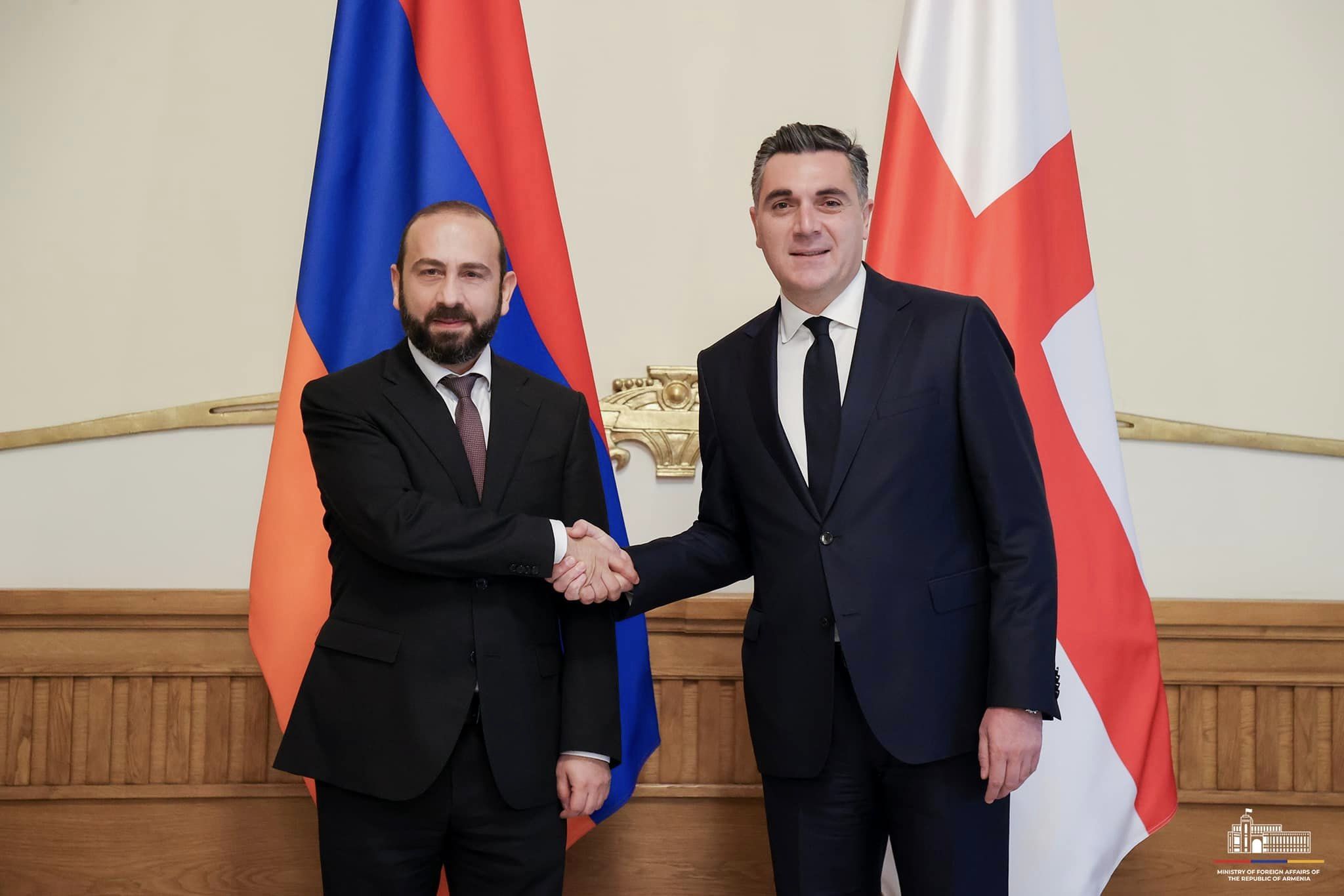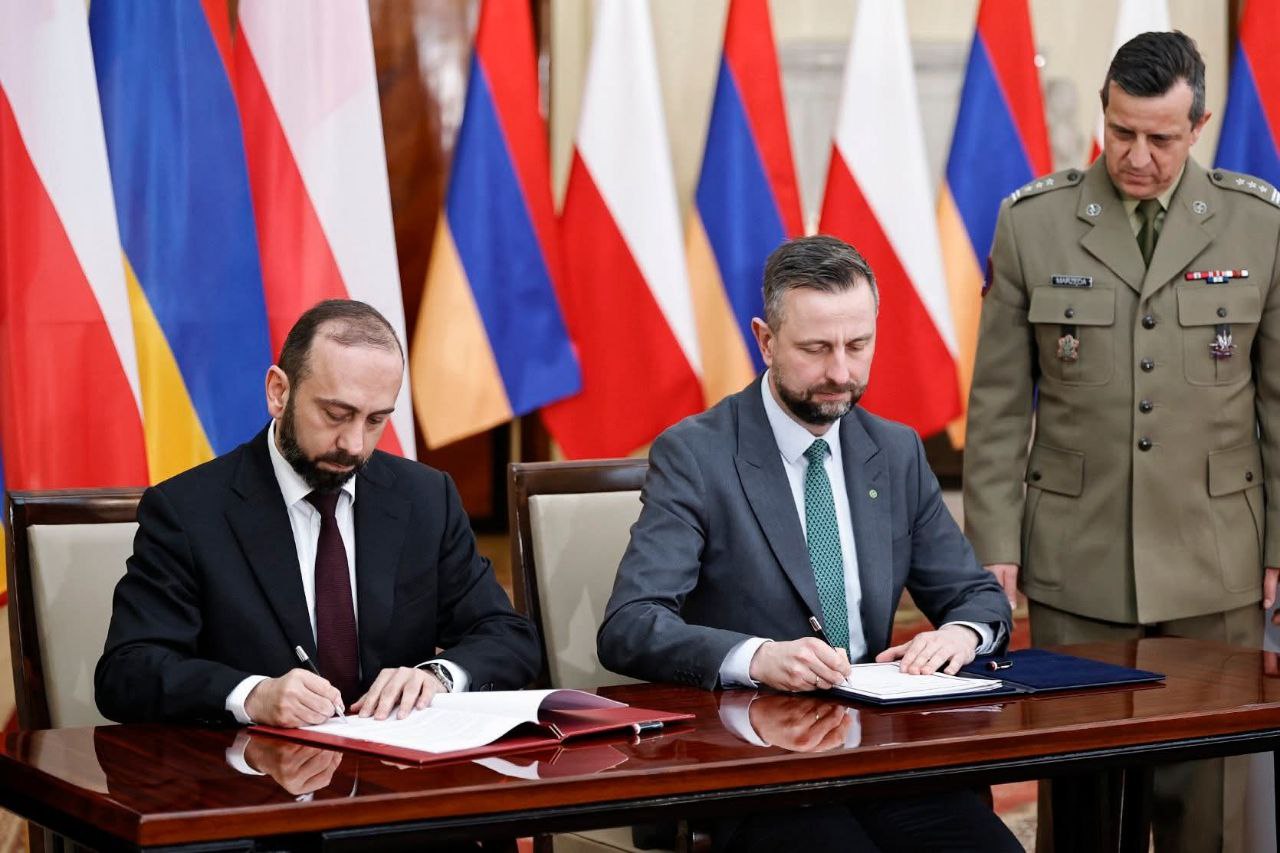Why did Georgia obstruct export of Armenian brandy to Russia? View from Yerevan
Problems with export of Armenian brandy
Since early May, Armenian brandy producers have reported that Georgia has been demanding additional inspections of cargo being exported to Russia. In response, Armenia’s Minister of Economy, Gevorg Papoyan, travelled to Tbilisi to resolve the issue.
Following his visit, it was announced that the two sides had agreed to allow 55 trucks to pass freely through the Gezi customs terminal, then 72 more, and later another 24. Notably, this terminal is typically used for inspecting vehicles carrying highly dangerous goods.
Why Georgia, as a transit country, insisted on testing Armenian brandy remains unclear.
What is known so far is that the process will now be carried out under “mutually acceptable and predictable conditions,” according to Armenia’s Ministry of Economy. This means there will no longer be lengthy inspections in Georgian laboratories, which had previously caused trucks to wait at the border for up to 50 days. As a result, both producers and transport companies were incurring losses, having to pay for truck downtime and penalties for late deliveries.
“There will now be smooth transit passage. Details of the negotiation outcomes and next steps will be shared with businesses in due course,” added Minister Papoyan.
Economist Agasi Tavadzhyan pointed out that both Armenia and Russia are members of the same economic bloc — the Eurasian Economic Union (EAEU) — and believes this incident violates the principle of free movement of goods. Asked by JAMnews whether Moscow may have pushed for additional checks at the Georgian border, he replied:
“Moscow has more leverage over Armenia than over Georgia. In the past, when cargo was held up at the Russian border, it was done by Rospotrebnadzor. But in this case, they didn’t take any such steps. Why would Russia ask Georgia to act on its behalf when it could do it directly? So our problem isn’t with Russia — it’s with Georgia.”
He believes the reasons may go beyond trade and economics, and could be political in nature.
When Armenian journalists asked Minister Papoyan about possible political motives, he replied:
“I won’t answer that question. If our goal is to solve the problem, I don’t think it’s helpful to push me to make any assessments. I believe the issue can be resolved.”
- Moscow attempting ‘Ivanishvili 2.0’ operation in Armenia, says analyst
- Russia steps up pressure in Georgia, loses influence in Armenia — US intelligence report
- Opinion: ‘Restoring Georgia’s dialogue with West benefits Armenia’
- “France’s path to Armenia runs through Georgia.” Opinion from Yerevan
Two cancelled visits: what led up to Tbilisi meeting
Tbilisi has yet to comment on why transit cargo exported from Armenia to Russia was being subjected to inspection. In early June, Georgia’s Ministry of Finance even denied reports of delays involving Armenian trucks carrying brandy and wine, claiming that “standard customs procedures” were being followed.
In May, Armenian brandy producers held several protests outside the Armenian government building and the Georgian embassy. Addressing the demonstrators, Armenia’s Minister of Economy said: “The reasons are unclear to us. We’re trying to resolve the issue at all levels.”
As a result, the business sector was left waiting for quite some time. First, a planned visit by Armenia’s Minister of Economy to Tbilisi was cancelled, followed by the cancellation of a visit by Georgia’s Minister of Agriculture to Yerevan. It was only on 23 June that Armenia’s Minister of Economy and the head of the State Revenue Committee travelled to Tbilisi. After their visit, the release of Armenian brandy from Georgian customs warehouses resumed.
Expert commentary
Economist Agasi Tavadzhyan notes that transit cargo typically passes through Georgian territory in sealed containers, which are not opened during the journey.
“Technically, de jure, they do not enter Georgia. Why would Georgia obstruct their passage without a clear justification? It may be a political issue,” he suggests.
At the same time, Tavadzhyan says the Georgian government must clearly explain why the cargo was held:
“By obstructing the transit of goods, Georgia violated the principle of free movement of goods between EAEU member states — Armenia and Russia. According to the EAEU agreement, trade in goods, services, capital, and labour must move freely between member states.”
Tavadzhyan also believes that the Russian side may have legitimate concerns about the quality of some brandy.
The issue, he explains, is that certain producers do not use local grape spirits but rather cheap imported alcohol. However, he argues that if Moscow wanted extra testing, it would have done so through Rospotrebnadzor, as in the past.
The economist finds it difficult to estimate the losses suffered by Armenian companies or the wider economy due to the situation, but believes the damage is significant — as around 80% of Armenian brandy is exported to Russia.




















